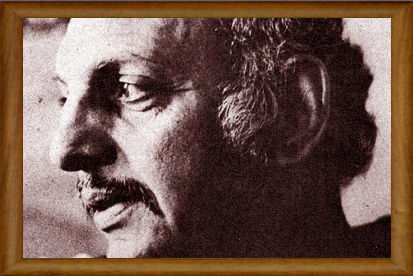Vanraj Bhatia happens to be one of our highest qualified and musically knowledgeable composers in the country. He completed his Indian classical music training while still in school and passed his masters in Arts (English) with Honours in 1949. During college he also learnt Western classical from Dr. Manek Bhagat.
Vanraj was born in 1927, in Bombay. Hailing from a well – to – do family originally from Kutch, and unique in his temperament, Vanraj went to study music composition at the Royal Academy of Music in London where he learnt under Howard Ferguson, Allan Bush and William Allwyn. After five years he moved on to the Paris Conservatorie where he studied with Nadia Boulanger between 1954 and 1959. He returned to India where he was appointed Reader in Musicology in charge of Western Music, Faculty of Music, Delhi University between 1960 and 1965.
It was 1959 that Bhatia composed his first – ever jingle for Shakti Silk Sarees. It was the first – ever original music recorded for an Indian ad film in the country. Recorded at Film Center Lab in Mumbai during a monsoon deluge, Bhatia was compelled to compose and conduct the music without the visuals (which he had seen a day earlier) as the film failed to reach the studio. Incredibly the synchronization of music to visuals was perfect and this convinced Bhatia that jingles were his bread and butter. Still active in that field, except for the Delhi stint mentioned above – Bhatia has composed over 7000 jingles to date, most of them very popular!
The much awarded and decorated composer began to compose for films with Ankur (1974) and his first film with songs was Bhumika for which he recorded his career – first film song, ‘Tumhare Bina Jee Na Lage’ sung by Preeti Sagar and penned by Majrooh Sultanpuri. Bhatia rues the fact that due to his art film association, he was not offered mainstream films as composers. “Everyone knows that jingles are so easy to sing and are sung by the masses as well as the classes from every nook and cranny in the country and city. But for many years I knocked at the doors of all the top producers without any result. To make matters worse, most of my film’s music is not even released in the market as they are branded as music from an art film!” Bhatia’s popular compositions include ‘Mhaaro Gaam Kaatha Paare’ (Manthan) and ‘Piya Baaj Pyaala’ (Nishant). His last published score was Plus Film Sardari Begum. And at 72, Bhatia composed the recent Pop album Ritika, which was not promoted much by Sony Music.
Bhatia’s films, with and without songs include the Benegali films as well as Junoon, Kalyug, Mandi, Trikaal, Susman, Antarnaad, Sardari Begum and a couple of serials for him. His major works are Vinod Chopra’s Sazaye Maut and Khamosh, Aparna Sen’s 36 Chowringhee Lane, Saeed Mirza’s Mohan Joshi Haazir Ho, Kundan Shah’s Jaane Bhi Do Yaaron, Vijaya Mehta’s Pestonjee and Prakash Jha’s Hip Hip Hurray. He has also scored the background score for main stream films like Ajooba, Damini, Pardes, Beta, Chamatkar, Bekhudi, Bandish, Ghatak, China Gate and Himalayputra. He has also composed the score for various TV serials (Khandaan, Tamas, Yatra, Lifeline, Discovery Of India, Wagle Ki Duniya etc.), several corporate and business films and documentaries, events like the Osaka and Asia 1972 fairs. His private albums include Meditation, The Earth and the Bhagvad Geeta in Sanskrit.
The awards he received include Sir Michael Costa Scholarship (1951-4), Royal Academy’s Gold Medal (1954), Rockefeller Scholarship (1954-8), French Government Scholarship (1957-8), Bengal Film Journalists Association award for the music of Bhumika (1976) – his first film with songs and Manthan, his second (1977), two consecutive Sur Singar Samsad awards for the Best Classical Score /Song in 1986 and 1987, the President’s Gold medal for Tamas in 1988, the Sangeet Natak Academy Award in 1989 and the Maharashtra Rajya Puraskar in 1990.

